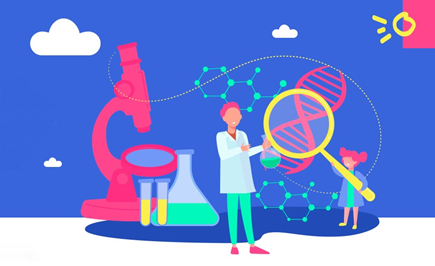News . Our Blog Kicking off the CONNECT User Advisory Board

At the beginning of February 2021, the CONNECT User Advisory Board (UAB) was kicked off welcoming seven of its nine new members from Spain, Greece, and Brazil. The UAB will help ensure the relevance and quality of the project by providing feedback and recommendations throughout the three-year project period.
Board members will support the project in two manners – globally and locally. The Global UAB will meet every four months for a two-hour online session, to discuss current challenges faced in the project. The agenda for each session will go through an internal process for deciding the most relevant and urgent topics. Board members will be briefed on the agenda and receive relevant materials beforehand.
Locally, board members will support and provide feedback for the local implementation, however in a less structured manner.
Open-ended Scenario pilot
This first UAB meeting started with an introduction to the project by the Scientific Coordinator Alexandra Okada, followed by a discussion on the CONNECT Open-Ended scenario pilot.
CONNECT operates with two types of scenarios – structured and open-ended.
The structured scenarios are designed for schools to pick and build into their curriculum. The open-ended scenarios on the other hand take a point of departure in local challenges by setting up a structure for approaching local and familiar issues in the classroom.
The open-ended scenarios are an experiment aiming at stimulating students’ interest in science by approaching it from a different perspective, also known as science-action. They build on the tradition of deliberative democracy and technology assessment and are based on the idea of having societal needs and values set the agenda for research and innovation, not vice versa.
A science-action comprises three stages:
- To “CARE” about socio-scientific issues,
- To “KNOW” the purpose of science with scientists and
- To “DO” science-actions supported by their families and communities for a positive impact of science on the world.
The open-ended scenario pilot builds upon a framework of six steps, two steps for each CARE, KNOW and DO stage. Each step offers different options for choosing the method and participants, the order of the steps is however always the same: Framing, Questions, Knowledge & Opinions, Deliberation, Recommendations, and Dissemination. For the pilot, one combination of methods and participants has been put together. More combinations will be developed throughout the project.
Feedback and input from UAB members
The feedback received from the UAB members for the open-ended scenario was positive and valuable for the project.
- The UAB particularly highlighted that having students finding challenges within their own community is very beneficial, and these students’ ability to proactively bring relevant topics to the classroom should be always properly acknowledged.
- The UAB also suggested that teachers could support the students to choose a challenge, either by setting a general topic or by facilitating brainstorming exercises in class.
- The need for providing support to teachers in facilitating the implementation of the open-ended scenarios was also strongly emphasised, as the open and different approach might be challenging for the teachers to fit into an already hectic schedule.
- Last but not least, the UAB highlighted the importance to work closely with the schools and understand their needs and approaches.
The CONNECT UAB will meet again on Monday 14 June 2021.
Learn more about our UAB members here.